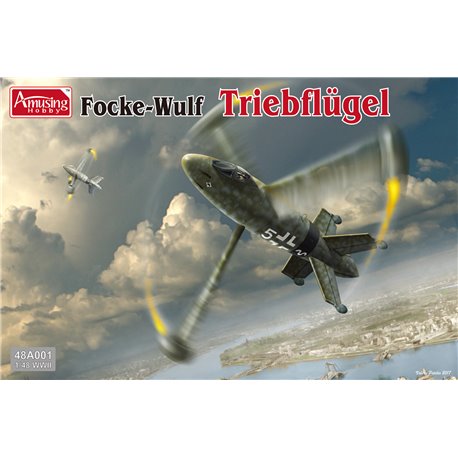No products
Product successfully added to your shopping cart
There are 0 items in your cart. There is 1 item in your cart.
Open on Good Friday
The shop will be open on Friday 18th April.
Bring us some chocolate!
Focke-Wulf Triebflügel - 1/48 scale
AMU48A001
Focke-Wulf Triebflügel
This product is out of stock
More info
Focke-Wulf Triebflügel
The Focke-Wulf Triebflügel, or Triebflügeljäger, literally meaning "thrust-wing hunter", was a German concept for an aircraft designed in 1944, during the final phase of World War II as a defence against the ever-increasing Allied bombing raids on central Germany. It was a vertical take-off and landing tailsitter interceptor design for local defence of important factories or areas which had small or no airfields.
The Triebflügel had only reached the wind-tunnel testing phase in mockups when the Allied forces reached the production facilities. No complete prototype was ever built.
This Focke-Wulf VTOL (Vertical Take Off and Landing) fighter/interceptor was designed in September 1944. The three untapered wings rotated around the fuselage and had a gradually decreasing pitch towards the wingtips, thus acting like a giant propeller. At the end of each wing was a Pabst ramjet, Since ramjets do not operate at slow speeds, either the rotor had to be driven by a fuselage mounted takeoff-booster or small Walter rocket engines could have been fitted to each ramjet pod.
The pilot sat in a cockpit near the nose and the armament consisted of two MK 103 30mm cannon with 100 rounds plus two MG 151/20 20mm cannon with 250 rounds. Although the Triebflugel was not constructed, a wind tunnel model was tested up to a speed of Mach 0.9.



